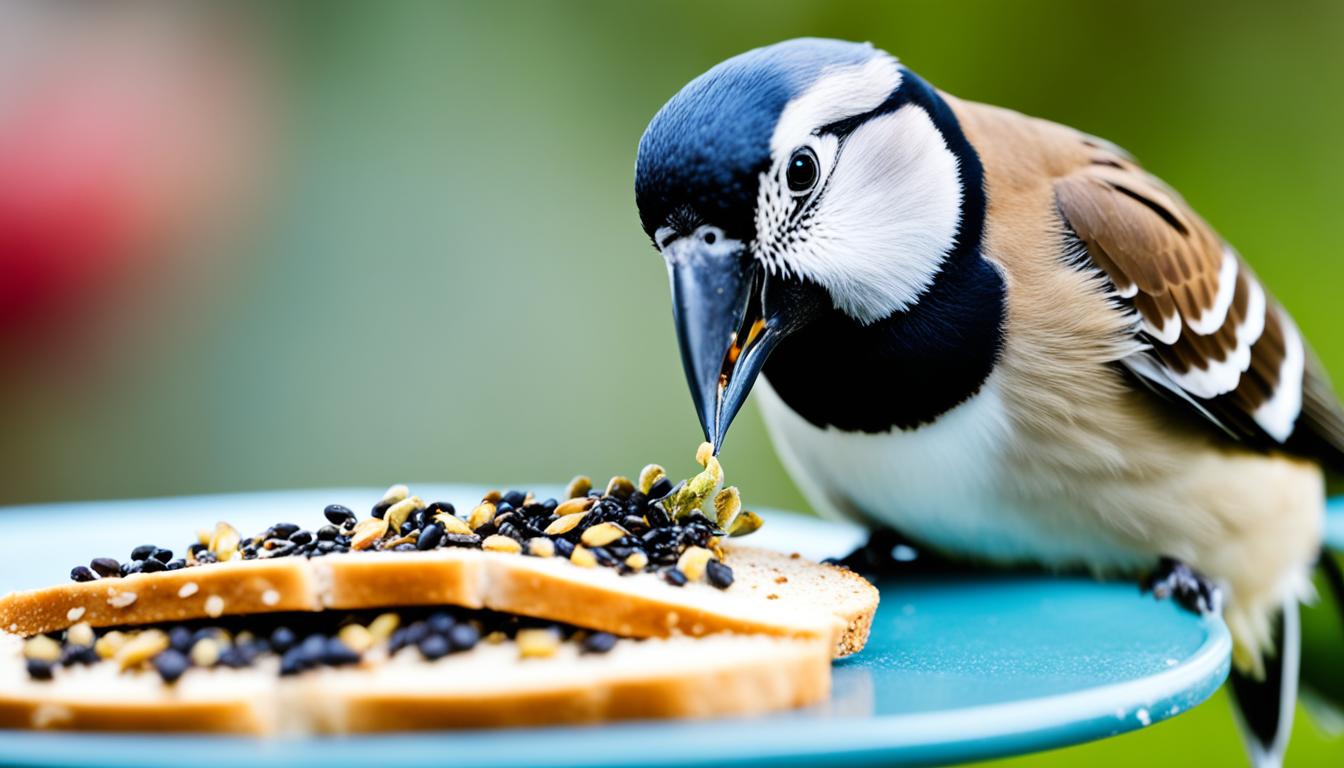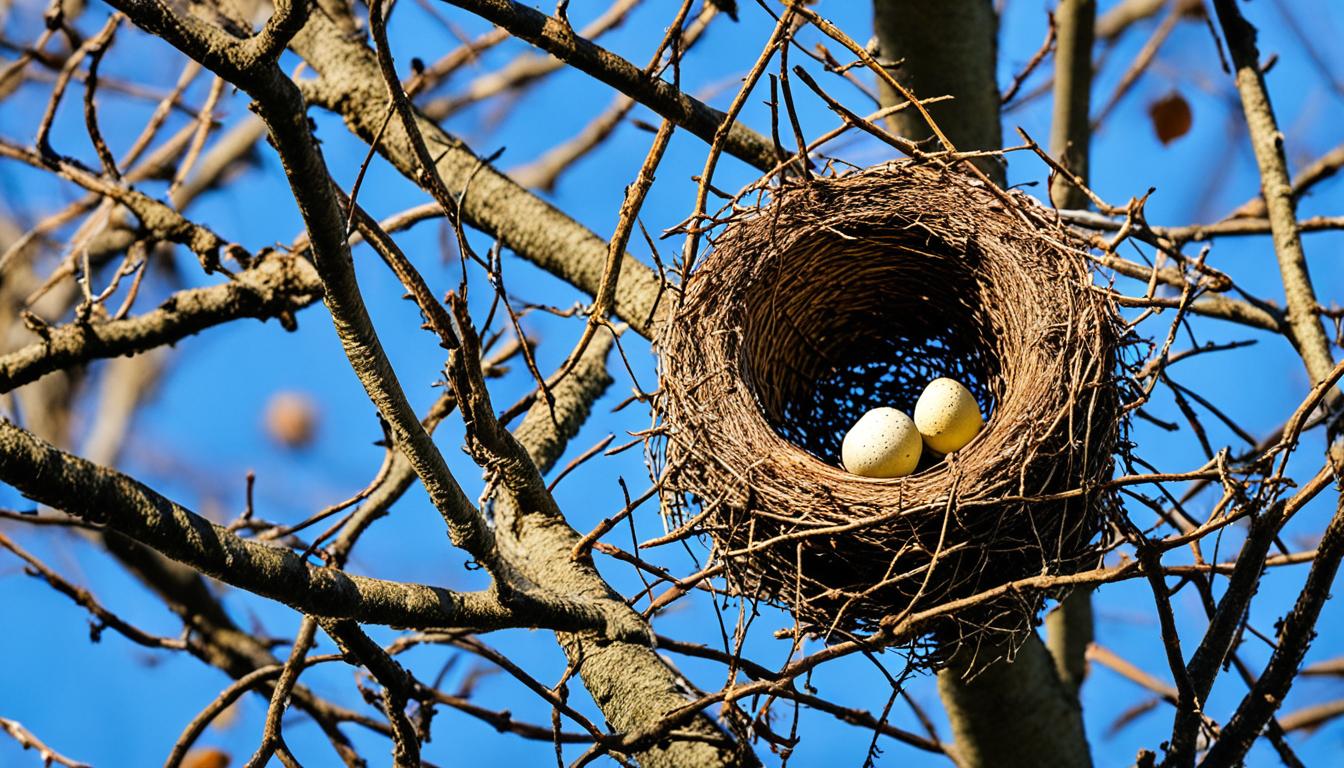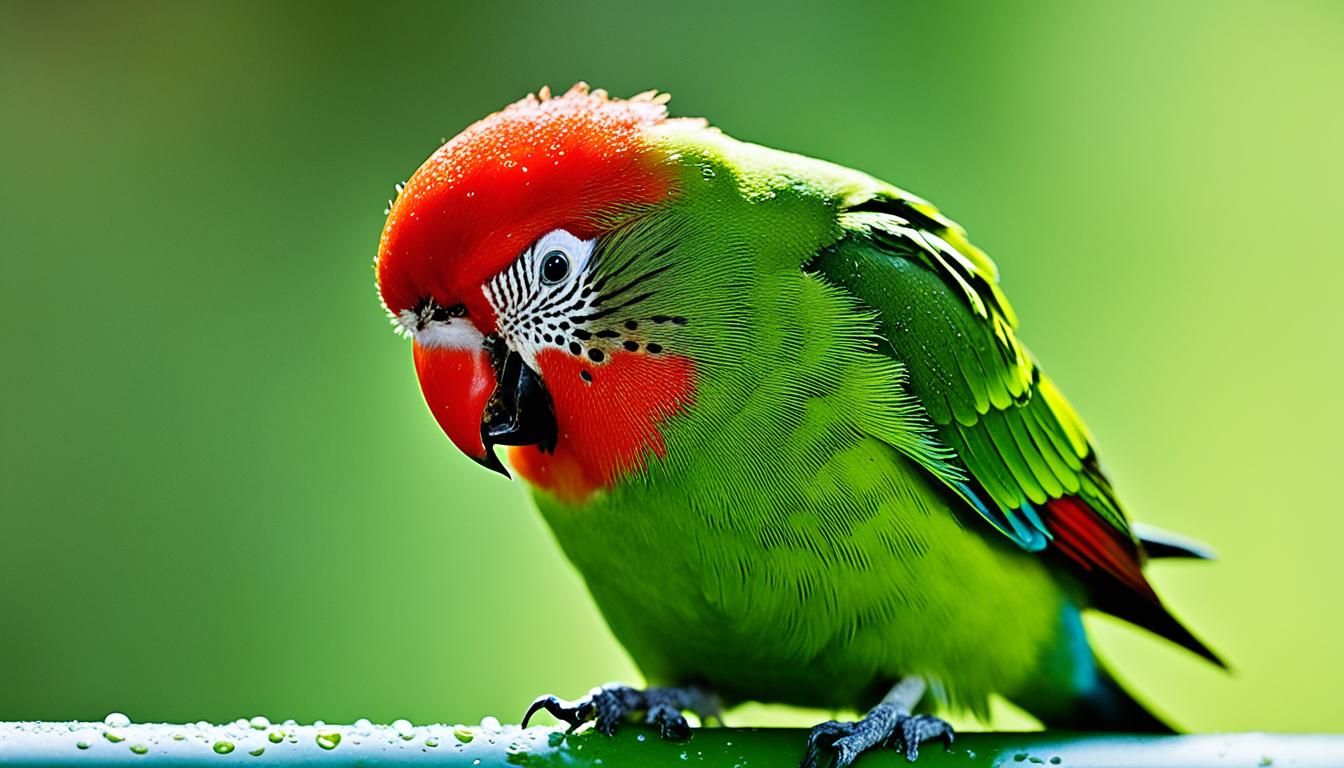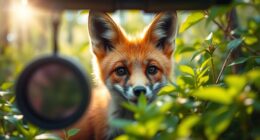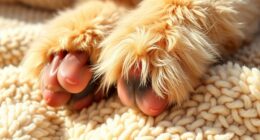Did you know that some foods can be harmful to birds? While we may like these foods, they can cause serious health issues for our feathered companions. Avocado, caffeine, chocolate, salt, and fat are just a few examples of foods that can be toxic to birds. Being aware of which foods to avoid can help keep your bird healthy and happy.
Key Takeaways:
- Avoid feeding birds foods such as avocado, caffeine, chocolate, salt, and fat as they can be toxic to them.
- Avocado contains persin, which can lead to heart damage and respiratory difficulties in birds.
- Caffeine can increase heart rate and induce hyperactivity in birds.
- Chocolate contains theobromine and caffeine, which can cause vomiting, seizures, and even death in birds.
- Excessive salt intake can disrupt electrolyte and fluid balance in birds, leading to dehydration and kidney failure.
Avocado – A No-Go for Birds
Avocado is one of the most common foods that are toxic to birds. The leaves of the avocado plant contain a substance called persin, which can cause heart damage, respiratory difficulty, weakness, and even sudden death in birds. While certain types of avocado may be safe for some bird species, it’s best to avoid feeding avocado and avocado-containing foods, such as guacamole, to birds.
| Avocado | Effect |
|---|---|
| Leaves | Toxic to birds and can cause heart damage, respiratory difficulty, weakness, and sudden death |
It’s important to prioritize the health and well-being of our feathered friends by avoiding the introduction of toxic substances into their diet. By understanding the potential risks associated with certain foods, we can ensure that our birds are kept safe and healthy.
Keep in mind that even though specific types of avocado may be safe for certain bird species, it’s best to err on the side of caution and withhold avocado altogether. The potential risks outweigh any potential benefits, and it’s always better to provide a diet that doesn’t include toxic foods.
Avocado leaves contain persin, a toxin that can be harmful to birds and cause heart damage, respiratory difficulty, weakness, and even sudden death.
As responsible bird owners, let’s prioritize the safety and well-being of our avian companions by avoiding toxic foods like avocado. Instead, focus on providing a nutritious and balanced diet consisting of bird-friendly foods.
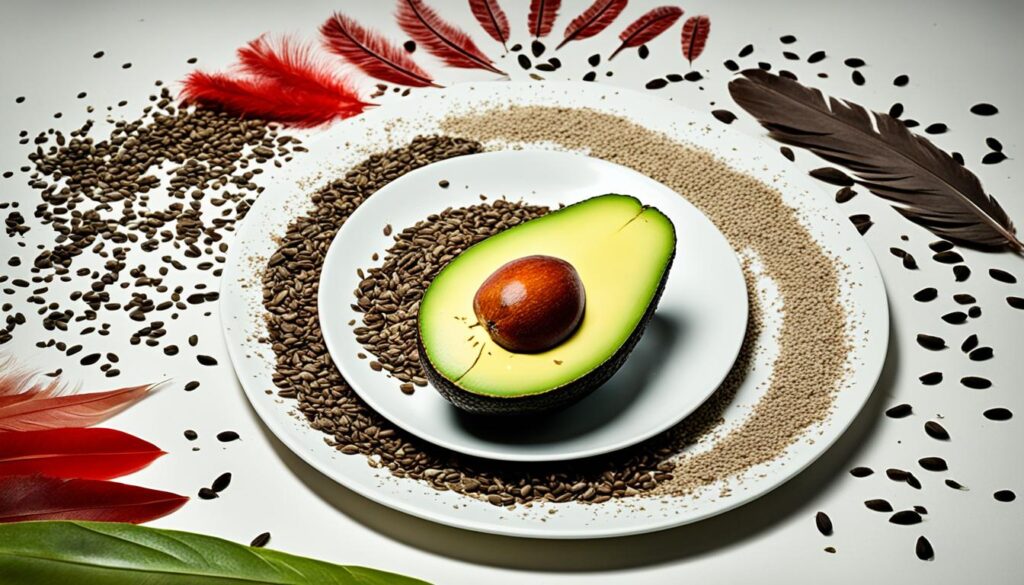
Caffeine – Not for Feathered Friends
Caffeine, commonly found in coffee, tea, and soft drinks, can be toxic to birds. Even a small amount of caffeine can have severe detrimental effects on their health. Consumption of caffeine can lead to increased heart rate, induce arrhythmias, hyperactivity, and may even result in cardiac arrest for our feathered friends.
It’s crucial for bird owners to be aware of the risks associated with caffeine consumption in birds. To ensure the well-being of your pet bird, it’s best to avoid offering any caffeinated products. Instead, provide fresh water as their primary source of hydration. As an occasional treat, fruit juice can be an alternative, ensuring it is caffeine-free.
Remember, caffeine is toxic to birds and can have serious consequences. By eliminating caffeine from their diet, you’re taking a proactive step in safeguarding your feathered companion’s health.
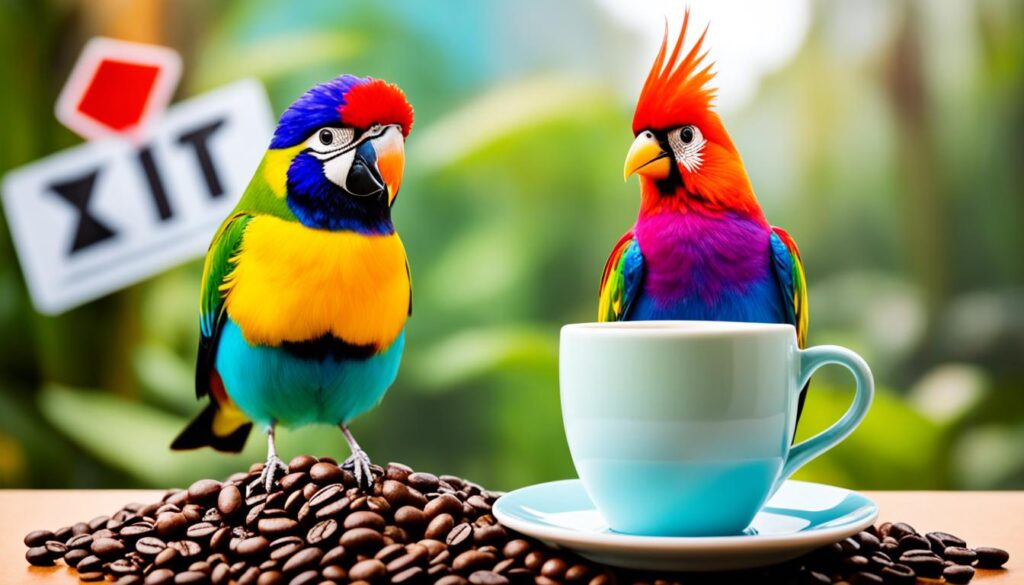
| Caffeinated Products to Avoid | Safe Alternatives |
|---|---|
| Coffee | Fresh Water |
| Tea | Fruit Juice (Caffeine-free) |
| Soft Drinks |
Chocolate – Beware of the Sweet Temptation
When it comes to chocolate, indulging in its sweet taste can be a dangerous temptation for our feathered friends. It’s important for bird owners to be aware that chocolate, especially in dark and bitter forms, is toxic to birds.
Chocolate contains theobromine and caffeine, both of which can have harmful effects on birds. Even a small amount of chocolate can lead to a range of severe symptoms, including vomiting, diarrhea, increased heart rate, hyperactivity, tremors, seizures, and in some cases, even death. It’s crucial to keep all chocolate and chocolate-containing foods away from pet birds to ensure their well-being and health.
“Even a small amount of chocolate can lead to a range of severe symptoms, including vomiting, diarrhea, increased heart rate, hyperactivity, tremors, seizures, and in some cases, even death.”
To understand why chocolate is toxic to birds, we need to look at its components. Theobromine is a stimulant that affects the bird’s nervous system, while caffeine can elevate heart rate and induce hyperactivity. Both substances can lead to severe health complications for birds if ingested.
If you are a bird owner, it’s essential to create a safe environment where your feathered friend cannot access any chocolate or foods containing chocolate. Remember, even a small nibble can have devastating consequences.
In addition, it’s important to educate and inform others about the dangers of feeding chocolate to birds. Sharing this knowledge can help prevent potentially life-threatening situations for our avian companions.
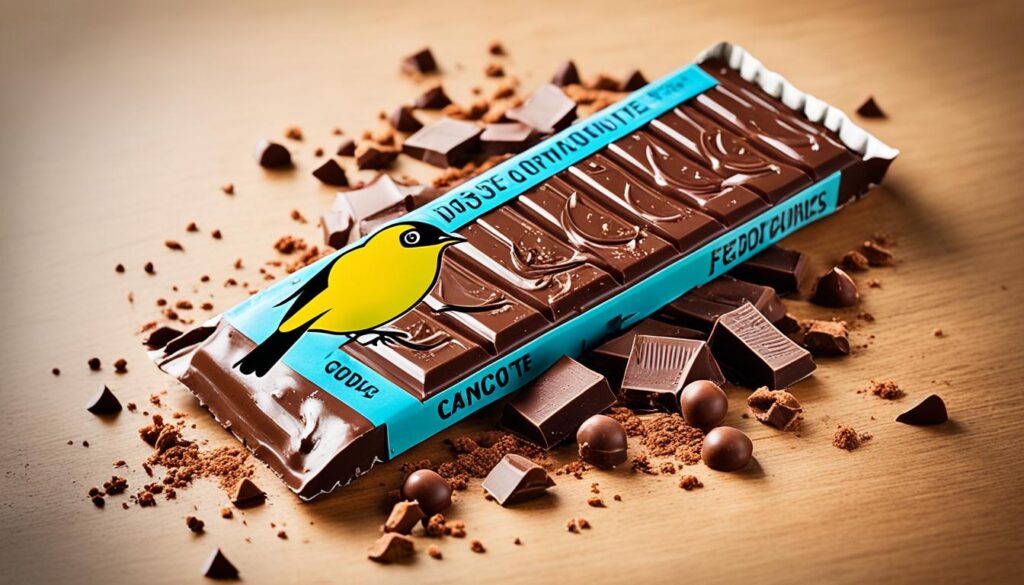
But what if your bird accidentally consumes chocolate?
If you suspect that your bird has ingested chocolate, it’s crucial to seek immediate veterinary attention. The vet will be able to assess the situation, provide appropriate treatment, and offer guidance on how to ensure your bird’s full recovery.
Prevention is always the best approach when it comes to toxic foods like chocolate. By being vigilant and keeping chocolate out of reach, you can help safeguard your bird’s health and well-being.
Salt – A Little Goes a Long Way
While salt is an essential component of human diets, it can be toxic to birds, even in small amounts. Excessive consumption of salty foods can disrupt the delicate electrolyte and fluid balance within a bird’s body, leading to a range of health issues. These include excessive thirst, dehydration, kidney failure, and ultimately, death. It is crucial for bird owners to recognize the potential dangers associated with feeding their feathered companions salty treats.
Birds have a unique metabolism that differs from humans and many other animals. Their kidneys are not designed to efficiently process high amounts of salt. This discrepancy can result in an imbalance of electrolytes, essential salts needed for normal bodily functions. When this equilibrium is disrupted, it can have severe consequences for a bird’s overall well-being.
As a responsible bird owner, it’s important to be mindful of the salt content in your bird’s diet. This means avoiding the temptation to offer them salty snacks such as chips, crackers, or processed foods. Instead, opt for unsalted alternatives like air-popped popcorn or pretzels. These options can still provide a satisfying and crunchy texture while minimizing the risks associated with excessive salt intake.
Remember, moderation is key when it comes to incorporating salt into your bird’s diet. A small amount of naturally occurring salt in fruits and vegetables is generally safe for birds. However, it’s essential to avoid adding additional salt to their meals. By maintaining a balanced and low-salt diet, you can help ensure the long-term health and well-being of your beloved avian companion.
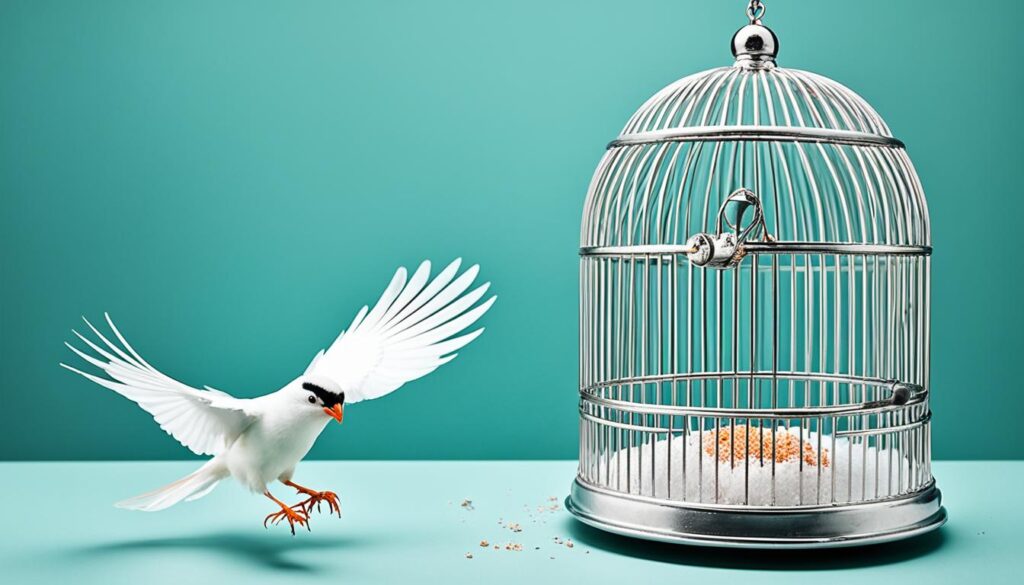
Fat – Limit the Fatty Foods
Birds, like humans, should be mindful of their consumption of high-fat foods. Excessive intake of fatty foods can have detrimental effects on their health, including obesity, elevated cholesterol levels, and coronary artery disease. It is crucial for bird owners to provide a balanced diet and restrict the intake of high-fat items.
High-fat foods should be limited to prevent potential health issues in birds. These foods include:
- Butter
- Oil
- Fatty meats
- Nuts
Replacing high-fat options with healthier alternatives can help maintain a bird’s well-being. Consider incorporating foods such as:
- Fresh fruits
- Leafy greens
- Whole grains
- Lean proteins
A balanced diet that meets the nutritional needs of birds is essential for their overall health and longevity. By providing a variety of nutrient-rich foods and limiting their intake of high-fat items, bird owners can help their feathered companions lead a healthy and vibrant life.
Quotable:
“Maintaining a balanced diet is key to a bird’s well-being. By limiting their consumption of fatty foods, we can help prevent potential health issues and promote their overall health.” – Dr. Emily Johnson, Avian Veterinarian
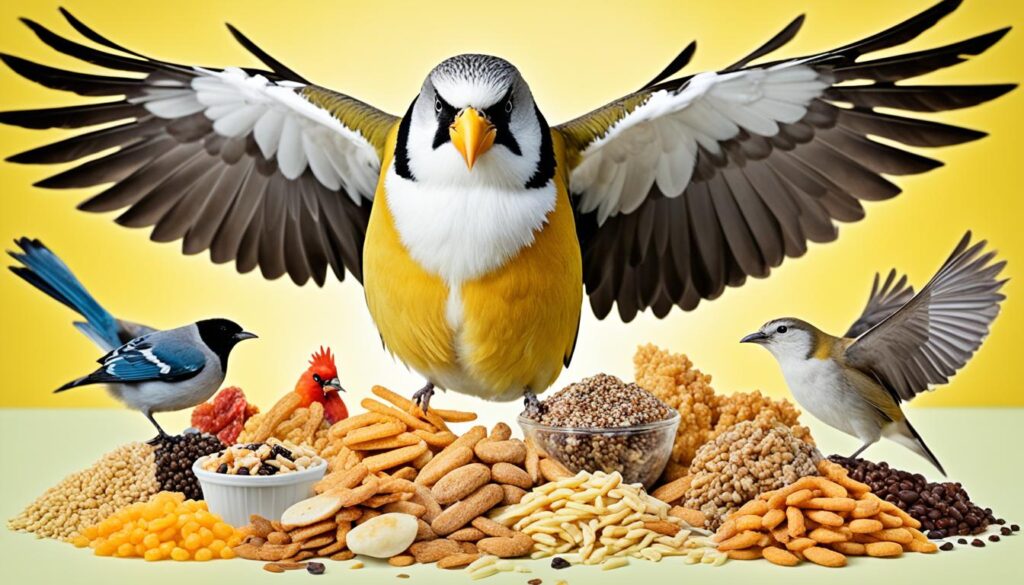
Fat Content Comparison in Common Bird Foods
| Food | Fat Content (%) |
|---|---|
| White bread (1 slice) | 1 |
| Sunflower seeds (1 cup) | 47 |
| Pumpkin seeds (1 cup) | 72 |
| Broccoli (1 cup) | 0.3 |
| Lean chicken breast (4 oz) | 2 |
Table: Fat content comparison in common bird foods.
Fruit Pits and Apple Seeds – Remove the Risk
While most fruits are safe for birds to consume, it’s important to be aware of the potential danger lurking within certain fruits like apples, cherries, apricots, peaches, nectarines, and plums. These seemingly harmless fruits can pose a risk to birds if they are fed with the seeds or pits still intact. Why? Because these seeds and pits contain small amounts of cyanide, which can be toxic to birds and potentially harmful to their health.
To keep your feathered friends safe, it’s crucial to remove the seeds and pits before feeding these fruits to them. This simple step helps eliminate the risk of cyanide poisoning and ensures that your birds can enjoy the delicious and nutritious benefits of these fruits without any harm.
Remember, when it comes to the well-being of our avian companions, it’s always better to be safe than sorry. So take a moment to remove those fruit pits and apple seeds before sharing these treats with your birds. They’ll thank you for it with their continued health and happiness!
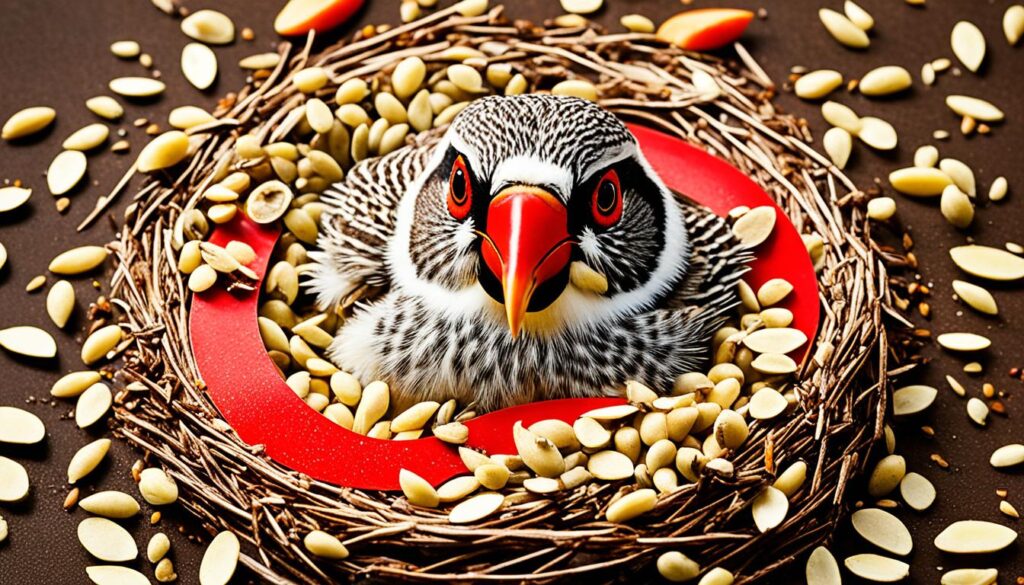
Quick Tips: Safe Fruits for Birds
- Offer peeled and deseeded apples, cherries, apricots, peaches, nectarines, and plums
- Stick to the flesh of the fruit, avoiding the seeds or pits
- Opt for organic fruits whenever possible to minimize the risk of pesticide exposure
- Wash the fruits thoroughly before serving them to your birds
- Introduce new fruits gradually and observe your birds for any adverse reactions
Onions and Garlic – Spicy, but Toxic
While onions and garlic may be healthy for humans, they can be toxic to many animals, including birds. These vegetables contain compounds that can irritate a bird’s mouth, esophagus, and crop, leading to ulcers and anemia. It’s important to avoid offering onions and garlic to our feathered friends to ensure their well-being.
Instead of these spicy veggies, you can provide birds with vitamin A-rich alternatives to add flavor to their diet. For instance, small pieces of hot pepper can offer a spicy kick without posing any harm to the birds.
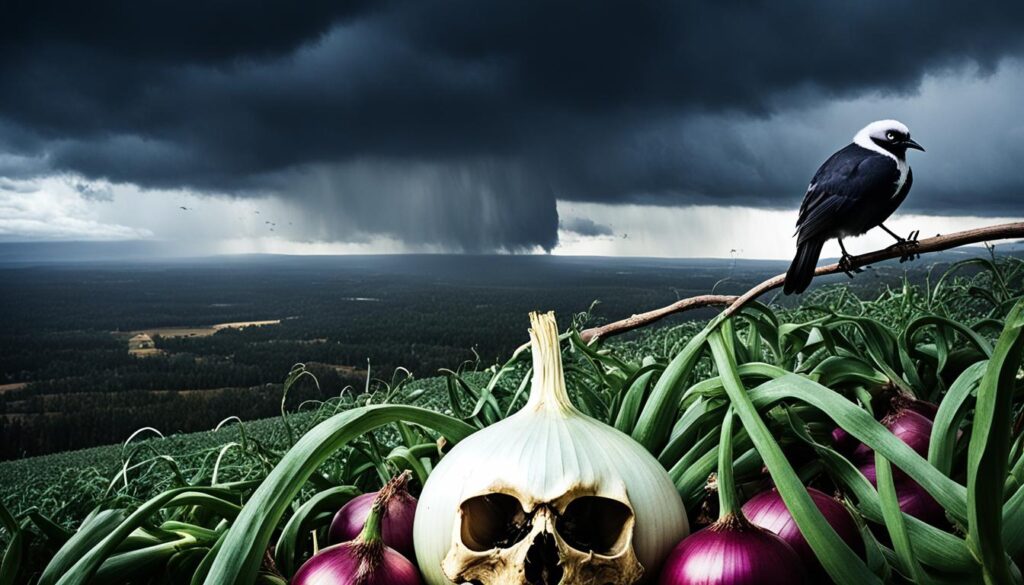
An image of birds perched on a branch, highlighting the relevance of the topic.
Xylitol – A Sweetener to Avoid
Xylitol is a common artificial sweetener found in various sugar-free products like gum, mints, and diet foods. While it may be a safe alternative for humans, xylitol can be toxic, and even deadly, to certain animals, including dogs. However, the effects of xylitol on birds have not been extensively studied, so it’s crucial to exercise caution and avoid exposing birds to this sweetener.
Bird owners should be aware that, based on the current knowledge, xylitol is not recommended for bird consumption.
Although the specific effects of xylitol on birds are not well-documented, it is best to err on the side of caution when it comes to their health and well-being. Birds should not be offered any chewing gum or products containing xylitol. Instead, their diet should primarily consist of low-fat fruits and vegetables, which provide essential nutrients without the potential risks associated with artificial sweeteners.
“Bird owners should prioritize offering a natural and balanced diet to their feathered companions, focusing on foods that are known to be safe and beneficial for birds’ overall health.”
– Dr. Jane Peterson, Avian Veterinarian
By avoiding xylitol and providing a nutritious diet, bird owners can help ensure the well-being of their avian friends. Here’s a helpful table highlighting some safe and healthy food options for birds:
| Fruits | Vegetables |
|---|---|
| Apples | Carrots |
| Blueberries | Cucumbers |
| Grapes (seedless) | Kale |
| Mango | Spinach |
| Papaya | Sweet potatoes |
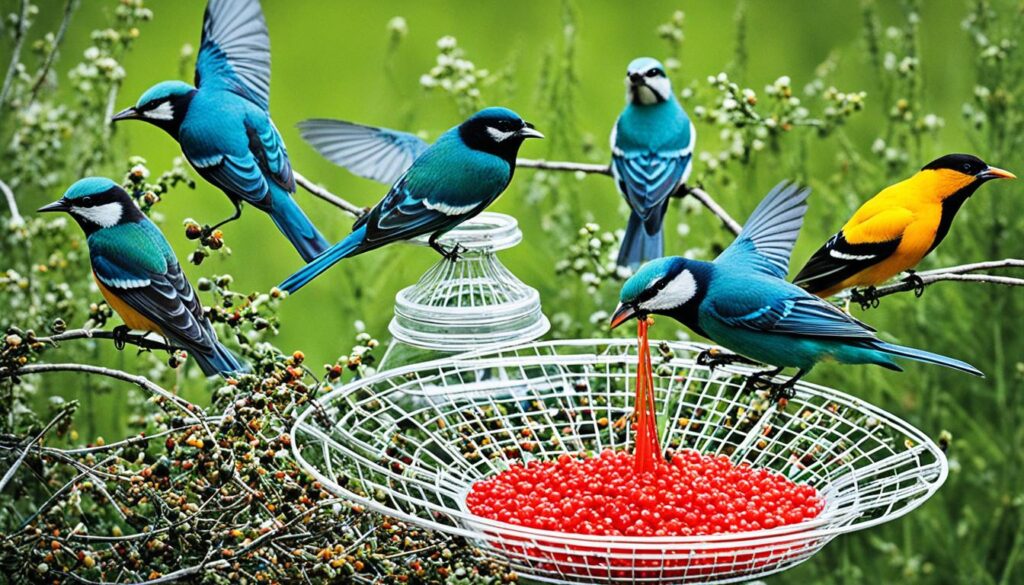
While the negative effects of xylitol on birds are not yet fully understood, it is important for bird owners to prioritize a diet that is known to be safe and beneficial. By avoiding xylitol and providing a balanced meal plan filled with fresh fruits and vegetables, bird owners can help promote the health and longevity of their avian companions.
Other Potential Risks
While not inherently toxic, some foods can still pose risks to pet birds. It’s important for bird owners to be aware of these potential dangers and exercise caution when offering them to their feathered friends. Let’s take a closer look at a few examples:
Peanuts: Contaminated with Toxin-Producing Fungus
Peanuts, a popular snack for humans, can be problematic for birds. They have the potential to be contaminated with a toxin-producing fungus called Aspergillus flavus. This fungus produces a substance known as aflatoxin, which is highly toxic to birds. Ingesting aflatoxin-contaminated peanuts can lead to liver damage and other health issues in birds.
Certain Plants: Watch Out for Toxic Parts
Some plants that are safe for humans may have parts that are toxic to birds. For example, the leaves, stems, or seeds of certain plants can contain compounds that are harmful to birds if ingested. It’s important to research and ensure that any plants in your bird’s environment are safe for them to be around and to prevent their access to any potentially toxic parts.
Dairy Products: Birds Cannot Digest Lactose
While dairy products like milk, cheese, and yogurt are a common part of the human diet, they should be avoided when feeding birds. Birds lack the necessary enzyme, lactase, to properly digest lactose, the sugar found in dairy products. Consuming dairy can lead to digestive issues, such as diarrhea and discomfort, in birds. It’s best to stick to water and bird-appropriate foods.
Mushrooms: Some Varieties Can be Toxic
Mushrooms are a diverse food group, and while most are non-toxic, some can be toxic to birds. Certain varieties of mushrooms contain toxins that can cause serious health problems or even be fatal to birds if ingested. It’s important to avoid feeding wild mushrooms to birds and to stick to mushrooms that are safe for consumption, such as those found in bird-safe commercial diets.
Consulting with a veterinarian is always a good idea if you have any doubts about the safety of certain foods for your pet bird.
| Food | Risks |
|---|---|
| Peanuts | Contaminated with toxin-producing fungus (aflatoxin) |
| Certain Plants | Toxic parts (leaves, stems, seeds) |
| Dairy Products | Inability to digest lactose |
| Mushrooms | Some varieties can be toxic |
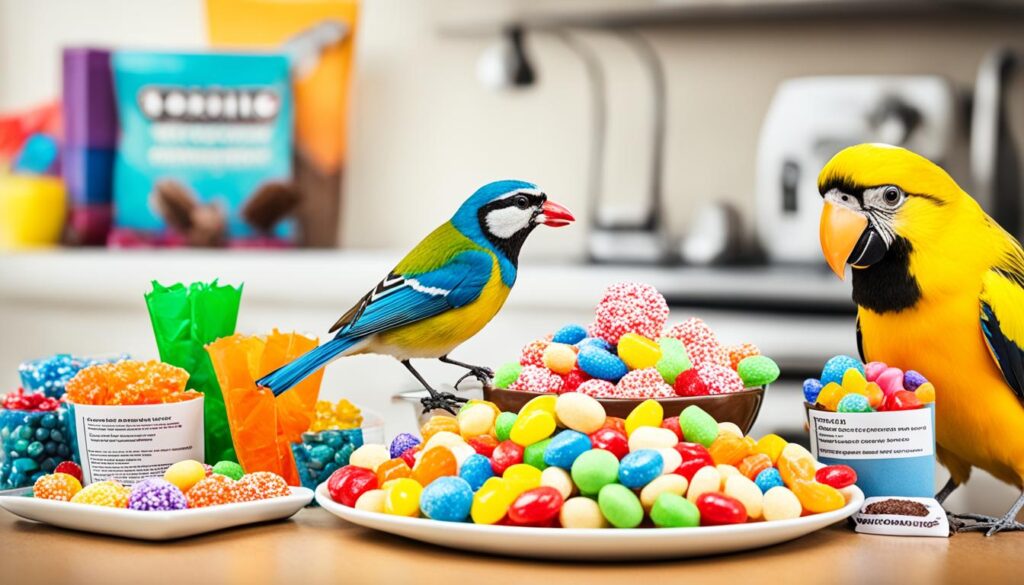
Conclusion
The toxic food for birds poses significant risks to their health and well-being. By being aware of these foods and following safe feeding tips, bird owners can ensure their feathered friends stay healthy and free from potential illnesses caused by toxic ingestion.
Toxic foods such as avocado, caffeine, chocolate, salt, and fat can have severe consequences for birds. These foods can lead to heart damage, respiratory difficulty, weakness, hyperactivity, seizures, and even death. Therefore, it’s essential to avoid feeding these toxic foods to birds at all costs.
Instead, bird owners should focus on providing a balanced and nutritious diet for their pets. Consulting with a veterinarian can be especially helpful in obtaining specific dietary recommendations for individual bird species. Veterinarians can offer valuable insights on the best foods to feed birds, ensuring they receive the necessary nutrients without any health risks.
In conclusion, educating yourself about toxic food for birds and implementing safe feeding tips is crucial for maintaining the health and well-being of your feathered friends. By avoiding toxic foods and offering a well-rounded diet, you can help keep your birds healthy and free from potential illnesses caused by toxic ingestion. Remember, always consult with a veterinarian for personalized dietary guidelines for your pet birds.
